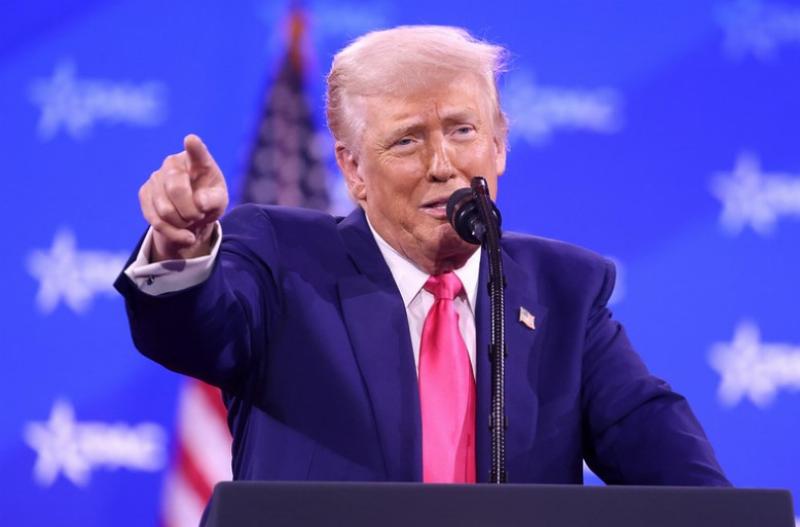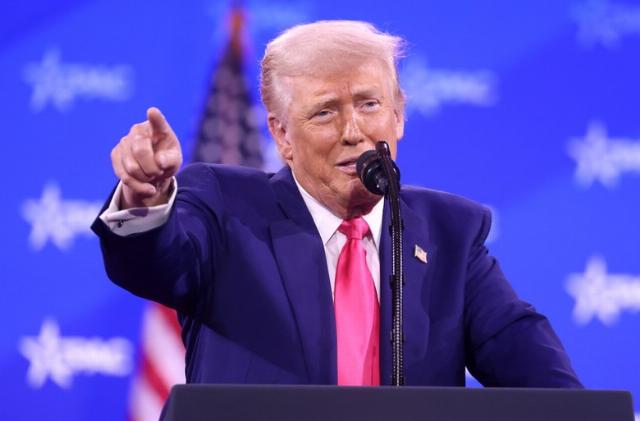


After intensive rounds of negotiations between Putin and Steve Witkoff, Trump met Putin to bless the deal. Trump created maximum suspense. Once Iranian operations concluded, he shortened the deadline to mid-August for Putin to agree to terms. Witkoff was dispatched to close the deal, with ruinous economic sanctions the alternative. Unless the four walls of an agreement were already standing, Trump wouldn’t have left Washington.
To reach a deal, both sides must want success, which isn’t true for Europe. Putin is gaining ground deeper into Ukraine, preparing to forfeit recent gains for territories closer to Russia. Some mineral rights Trump insisted on extracting from Ukraine reside inside territory Russia now holds. These represent cards he can exchange for peace. Redrawing the map is underway.
Trump’s messaging tradecraft was on full display. He huffed and puffed before the summit, threatening to walk — perhaps permanently — if a deal wasn’t attained. Theatrical bluster created a dramatic stage for domestic consumption and aiding in dragging Europeans kicking and screaming to a deal. Trump granted Bret Baier exclusive access, ensuring positive media coverage. A B-2 bomber, flanked by F-35s, performed a flyover as Trump welcomed Putin on the tarmac. That was over the top, even for Trump.
For all we know, the main subject during the session may have been the menu for the subsequent luncheon.
The press conference began at 7:00 E.T., piggybacking on the evening news. Trump invited Putin to speak first, acting as the gracious host and ensuring he got the final word. He hasn’t beamed so broadly since signing his executive order banning boys from girls’ sports, surrounded by dozens of female athletes. Viewers didn’t need to keep the press conference sound on; the image spoke loudly. NATO and Zelensky (in that order when Trump mentioned them) were handed a fait accompli. Trump promised to call both later, as a dismissive afterthought. Never have so many been so sad to see bloodshed end.
At the conclusion, Putin declared, “Next time in Moscow.” We’ll never know if that was prearranged, but Trump acted surprised. It’s obvious that if the first session was held in America, the next would take place in Russia. Zelensky will be forced to visit a country he has launched attacks on, making further attacks impossible thereafter. Extended negotiations provide opportunities for Trump to dominate news cycles.
Two hundred seven days into his final administration, Trump arrives at the beginning of the end of his principal foreign policy objectives, unburdening from what had been. Hillary Clinton previewed Democrats’ counter-messaging before the summit began. Cue the whining over territorial concessions forced upon Ukraine. Trump will be crowing about ending the body count, while Democrats will chatter about material concerns. Checkmate. If the Nobel committee added a war prize to their medals, Clinton would top the list of nominees. With indictments hanging over their heads, individuals such as Clinton and John Brennan are tripping over each other, calling for Trump’s Nobel prize.
Thirty-four years after the Soviet collapse, the promised peace dividend finally approaches reality. Trump has proposed that Russia and China join us in slashing defense spending in half. Maintaining global tensions indefinitely is too expensive. The Deep State has done everything possible to prevent this day. Upon the Soviet collapse, the Cold War officially ended. The peace dividend to the U.S. lasted all of about five minutes, six minutes, tops. The Deep State, especially under the Clinton and subsequent administrations, began looting much of the globe for fun and profit, sending American taxpayers the bills. A second Cold War was concocted, to justify conflict, arms sales, and an excuse to target Trump.
Former director of Central Intelligence George Bush addressed the Ukrainian parliament on August 1, 1991, over four months before the Soviet collapse. Drafted by Condoleezza Rice, Bush’s speech urged Ukrainians to stick with Gorbachev rather than pursue independence.
We will support those in the center and the Republics who pursue freedom, democracy, and economic liberty. ... Some people have urged the United States to choose between supporting President Gorbachev and supporting independence-minded leaders throughout the U.S.S.R. I consider this a false choice. ... We will maintain the strongest possible relationship with the Soviet Government of President Gorbachev. But we also appreciate the new realities of life in the U.S.S.R. And therefore, as a federation ourselves, we want good relations — improved relations — with the Republics.
The speech was vapid, a snoozefest of platitudes and contradictions. The audience of communist apparatchiks applauded wildly. Most Ukrainians felt different. Nixon speechwriter William Safire dubbed it the Chicken Kiev speech. American conservatives thought Bush blew it by dismissing Ukrainians’ hopes for independence and urging a reformed Soviet Union. Twenty-three days later, Ukraine declared independence. Four months later, 92% of Ukrainians unburdened themselves of what had been in a referendum for independence,
Safire thought Bush had made a “colossal misjudgment” and was appeasing Soviet leaders. Ukrainian nationalists were outraged, especially by Bush’s ridiculous declaration that “freedom is not the same as independence. Americans will not support those who seek independence in order to replace a far-off tyranny with a local despotism. They will not aid those who promote a suicidal nationalism based upon ethnic hatred.” We would still be sending taxes to HRH King Charles III if American revolutionaries feared “suicidal nationalism.”
Trump’s bold diplomacy, not unlike Reagan’s, contrasts with his predecessors’ timidity and the State Department ethos of past administrations. In Bush’s defense, he feared the chaos that could be unleashed by a nuclear superpower’s sudden collapse. Those fears became reality in post-Soviet Russia. History becomes far more predictable in hindsight. Once Clinton succeeded Bush, Deep State vultures flocked to feast on the Soviet carcass. Putin finally came to power on the previous millennium’s final day, when Yeltsin resigned and he was appointed acting president. Putin restored order through force of will.
At the Constitutional Convention, Benjamin Franklin famously declared, “A republic, if you can keep it.” As that republic transitions to a global empire, Jefferson’s dream of an “Empire of Liberty” approaches — if we can keep it. Jefferson hoped America’s example would inspire other nations. In 1780 he declared, “We shall ... add to the Empire of Liberty an extensive and fertile Country.” In 1809, a month after leaving office, he wrote to his successor, Madison, “We should have such an empire for liberty as she has never surveyed since the creation.”
We’re witnessing a repeat of Reaganism. Joined by leaders such as Canada’s Mulroney, Britain’s Thatcher, Australia’s Harper, Pope John Paul II, and Poland’s Lech Walesa, freedom advanced globally in the 1980s. The USSR was that era’s bogeyman, playing the role the CCP does today. Today’s leaders include Milei, Farage, Bolsonaro, Bukele, Netanyahu, Orban, Meloni, and Le Pen.
MAGAism, like Reaganism, becomes contagious. One nation atop a hill can’t enjoy increased freedom without attracting imitators, especially in the internet era. America’s Revolution inspired the French, Haitians, and various Latin American peoples to revolt, turning monarchies into democracies. Once Britain was evicted from our hemisphere, Spain was next. As Trump’s popularity increases, British prime minister Starmer’s declines. Populism and nationalism are again on the march. The Peace Train is pulling out. Next stop: Moscow.
Douglas Schwartz blogs at The Great Class War, applying pattern recognition of historical cycles to place current events into context.

Image: Gage Skidmore via Flickr, CC BY-SA 2.0.
